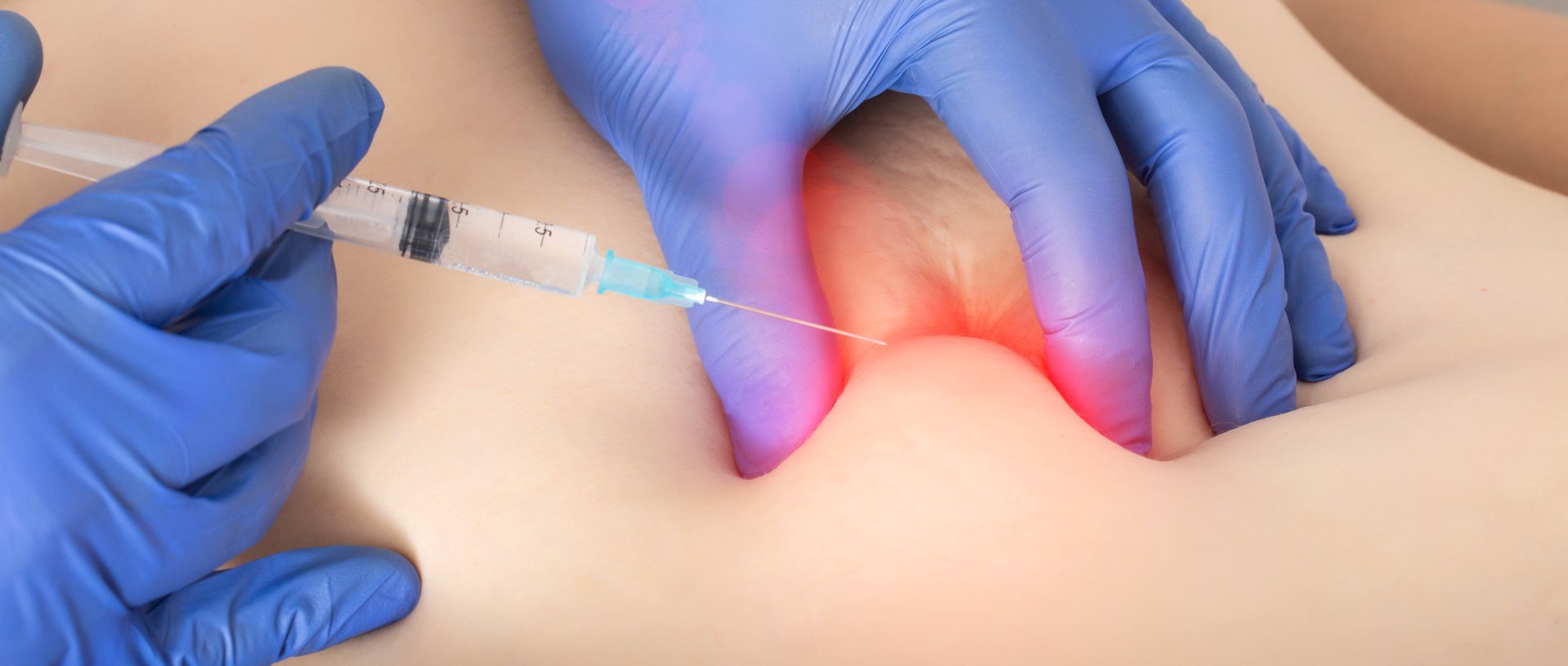TAP Blocks in Plastic Surgery
A Transversus Abdominis Plane (TAP) block is a form of regional anesthesia that targets the nerves supplying the anterior abdominal wall. The anterior abdominal wall is the area surrounding the front of the abdomen, and it is commonly operated on in various plastic surgery procedures, such as abdominoplasty (tummy tuck), liposuction, and hernia repair.

Types of TAP Blocks:
- Bilateral TAP Block: Involves injecting an anesthetic on both sides of the abdomen to provide pain relief for a wider area.
- Unilateral TAP Block: Targets only one side of the abdomen and is often used when the surgery is limited to that side.

How TAP Blocks Work:
TAP blocks can be performed unilaterally or bilaterally, depending on the extent of the surgery and the areas to be covered. The choice of anesthetic solution and volume may also vary based on Dallas plastic surgeon Dr. Azouz’s preferences and patient-specific factors. The goal is to ensure that patients experience effective pain relief and a seamless recovery process while minimizing the need for opioid medications and their associated side effects.
- Identification of pertinent anatomy: After a preoperative evaluation, board-certified plastic surgeon Dr. Azouz and the anesthesia team will collaboratively determine the most suitable timing for a TAP block. This procedure is typically done in the operating room after the patient has received any necessary preoperative medications. Dr. Azouz will identify the transversus abdominis plane. Once the plane is identified, he will insert a fine needle into the target area.
- Local Anesthetic Injection: Dr. Azouz will then inject a long lasting anesthetic into the space between the internal oblique and transversus abdominis muscles in the abdominal wall.
- Nerve Blockade: The abdominal wall is supplied by a network of nerves that transmit pain signals to the brain, and carry sensory information from the skin, muscles, and other tissues in the abdominal region. The local anesthetic works by blocking the sodium channels in nerve cells, preventing electrical signals from being transmitted. As a result, the sensory nerves in the abdominal wall are temporarily numbed, and patients experience reduced or eliminated sensation and pain in the surgical area such as the tummy tuck incision line, areas treated with liposuction or in hernia repair.
- Duration: The duration of the pain relief depends on the type and concentration of the local anesthetic used by board-certified plastic surgeon Dr. Azouz. While some TAP blocks can reduce pain for several hours, others can do so for up to 24 hours or more.
- Multimodal Pain Management: TAP blocks are often part of a multimodal pain management strategy. This means they are used together with other pain relief methods, such as non-opioid medications, muscle relaxers or compression garments to provide comprehensive pain control.
Use of TAP Blocks in Plastic Surgery:
TAP blocks are versatile and can be adapted to a variety of plastic surgery procedures where effective pain relief in the abdominal or adjacent regions is essential. They aid in lowering the risk of complications and patient discomfort. The choice to use TAP blocks and their specific application will vary based on the surgical approach, patient preferences, and Dr. Azouz’s guidance.
Examples of Procedures using TAP Blocks:
- Abdominoplasty (Tummy Tuck): This surgical procedure aims at removing excess skin and fat from the abdominal area. It often involves tightening the abdominal muscles to create a firmer, more toned appearance.
- Liposuction: A cosmetic surgery procedure that removes excess fat from various parts of the body, including the abdomen, thighs, buttocks, and arms, to contour and reshape the body.
- Hernia Repair: Surgery performed when an organ or tissue protrudes through a weak area in the abdominal wall. There are various types of hernias, including inguinal, umbilical, and incisional hernias.
It’s important to note that the application and type of TAP blocks may vary depending on Dallas plastic surgeon Dr. Azouz’s recommendation, the patient’s needs, and the characteristics of the surgery. Dr. Azouz and the anesthesia team will decide the appropriate timing and dosage for the TAP block to provide comprehensive pain relief and enhance the patient’s recovery experience.
Written by Anika Patel and Rhiya Patel on behalf of Azouz Plastic and Cosmetic Surgery
Posted on behalf of
